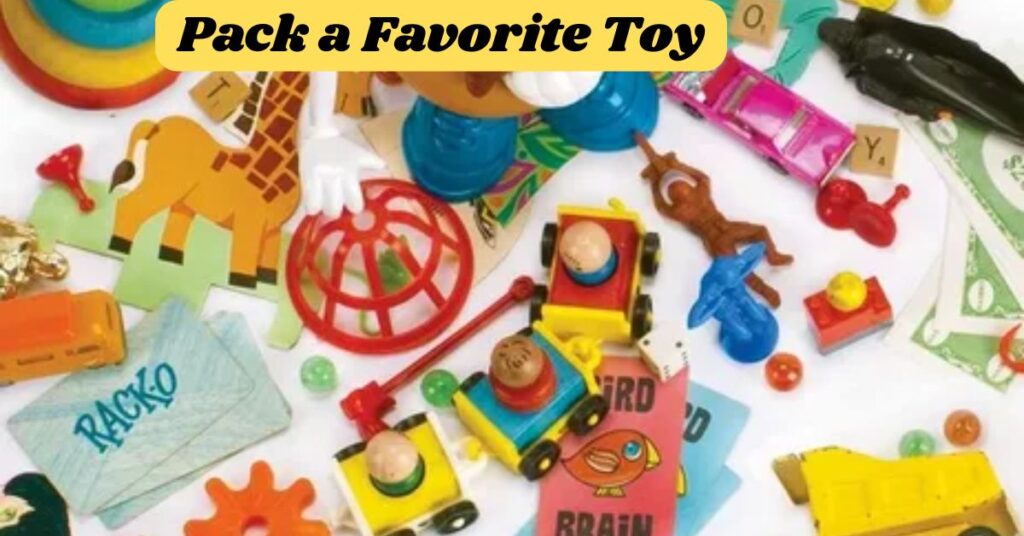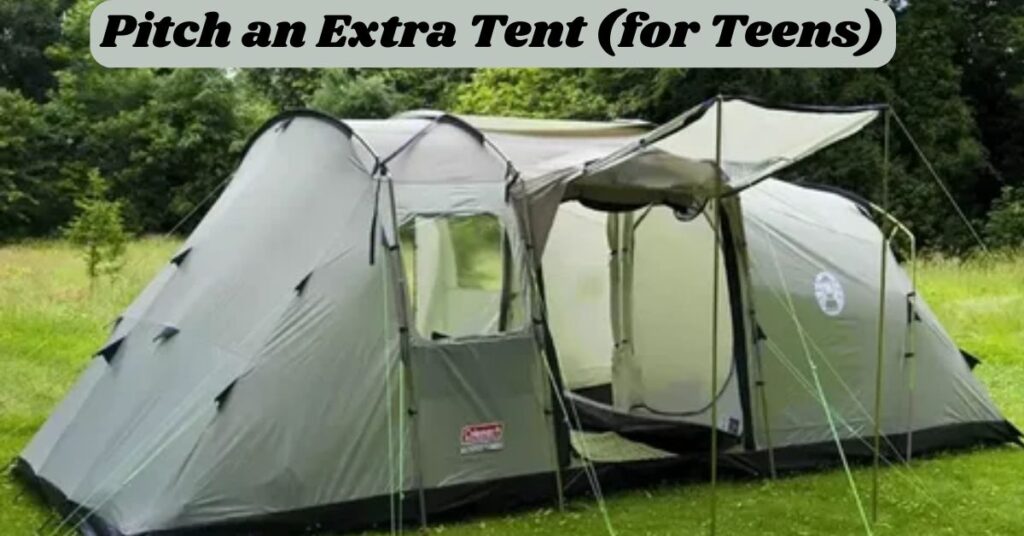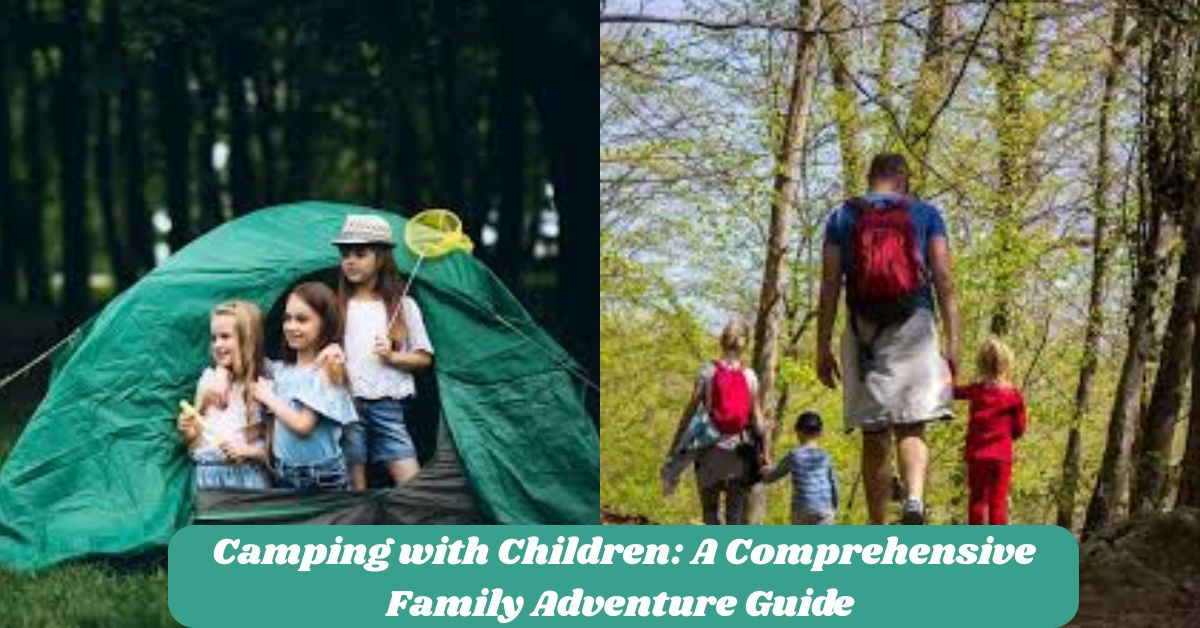Family camping offers an excellent chance for a family to unplug from the world and experience the outdoors. The great outdoors is really a stage for adventure, discovery, and memories that will last a lifetime.
Family camping provides families the opportunity to turn ordinary moments into great adventures together and create a bond between family members while developing lifelong skills.
Practice Camping at Home
We must be innovative and embracing when introducing children to camping. Set up a safe camping environment either in your backyard or living room.
Set up a tent together to begin your adventure. Invite children to explore the tent, hang out inside, and make themselves comfortable in their new sleeping arrangement.
This home practice reduces anxiety and builds excitement for actual campground experiences.
Let Kids Help Pack
If camping, participation can be the key to preparation. Use a comprehensive shopping list and have children participate in planningConsider providing each child with a colored duffel bag so they are involved while staying responsible and organized.
Make sure to check over their packing to verify that nothing important is left behind. This teaches kids responsibility while building excitement for the camping trip.
Pack Food Kids Like
If you have kids, consider involving them in meal planning. During your preparations, ask them what meals and snacks they would enjoy taking on your family camping adventure.
Choose food options that are straightforward and manageable for children to assist with, whether you’re at the campfire or inside the camper.Have some snacks on the ready to quickly grab and develop some special treats to make it more fun.
Find the Right Campsite
Choosing the ideal campsite involves some thought. Find family-friendly places that best fit your family’s requirements. Consider how close it is to a bathroom, what activities they have, and of course if it’s safe or not!
Start with more developed campgrounds that offer additional comfort and gradually progress to more adventurous locations as your family becomes more experienced.
Research Activities
Preparation prevents boredom and ensures an engaging camping experience. Research potential activities available at your destination.Look for nature walks, ranger programs, junior ranger programs, and family trails. Consider outdoor games, nature guides, and equipment that promote outdoor learning and exploration.
Organize Your Gear
An organized camping experience can really make or break a trip. Consider bringing clear plastic bins or a separate bag for equipment and organizing everything by “type “of camping gear.
For example, kitchen items should all stay together, sleep items should stay together, and so on. This will help you save time and become less stressed when you arrive at your camp, especially after a long drive.
Dress Your Kids in Layers
Outdoor adventure can be accompanied by unpredictable weather changes. Dress children in loose, comfortable clothes that are stretchy and easy to adjust by layering.
Pack waterproof jackets, warm sweaters and a spare set of clothes.Remember the temperature difference between day and night when dressing children to ensure their comfort and protection.
Anticipate Possible Challenges
Understanding your children’s unique needs helps prevent potential issues. Consider their sleeping habits, bathroom routines, and potential anxieties.
Bring familiar comfort items like a favorite stuffed animal or a travel toilet for younger children. Prepare solutions for common challenges to ensure a smoother camping experience.
Pack a Favorite Toy

Select toys that complement outdoor experiences. Select toys that promote discovery and creativity–like binoculars, magnifying glasses, or outdoor games that require very few accessories.Minimize toys to get your children outside, engage with nature, and make their own fun.
Add Special Touches
When camping, little details can be important. Think about kids’ gear in terms of glow sticks, mini flashlights, or a solar powered tent light.
These “little extras” in the gear help make kids feel like they are more involved, and also provide children with added engagement during the camping experience.
Involve Your Kids
Choose developmentally appropriate activities that give children a sense of being useful and appreciated.Little children can help fill water bottles or roll sleeping bags.
They may help with cooking, setting up a tent, or scrubbing a sink full of dishes.Helping with these duties teaches important skills while giving a family sense of working together toward a shared goal.
Have a Positive Attitude
Enthusiasm is infectious. Children will pick up on your camping spirit.Be excited and positive about the experience.
Welcome the unpredictable and model resiliency with challenges arise. Your positive energy will help children fall in love with adventure outside.
Think Safety
Create solid safety guidelines prior to and during the camping experience. Explain what adventure means, instruct them on what to do if they become lost, and discuss general backcountry safety.
READ THIS BLOG :7 Ways to Save Money on a Family Vacation: Smart Travel Strategies for Families
Provide children with whistles and instruct them on how to use them. Always remain close to children if there are any potential safety risks of injuring themselves near water or slopes.
Find Teaching Moments
Camping provides endless options for environmental education.You can educate children about Leave No Trace principles, respect for wildlife in its entirety, and environmental protection.
You can fill their appetite for natural information, help them identify plants and animals, and talk about the importance of conserving ecosystems.
Make the Most of Nature
Make the camping experience an enriching learning opportunity. Examine wildlife, inspect fascinating rocks and insects, and identify bird species.
Participate in ranger programs and nature walks. Bring field guides to help you learn and appreciate nature.
Embrace Dirt
Acknowledge that children will become dirty on camping trips. Bring wet wipes, a small bucket for hand-washing, and extra clothes.If possible, establish an area outside of the tent for muddy shoes and messy activities.
Dirt is part of the true outdoor experience, also don’t forget the beat in all of this, children won’t be children if they are not muddy!
Pitch an Extra Tent (for Teens)

Teenagers appreciate privacy and independence. Consider bringing a separate tent or creating a designated space for older children.
This approach allows teens to feel more comfortable and gives them a sense of autonomy during the family camping trip.
Cut Your Teens Some Slack
Understand that teenagers might feel self-conscious about “roughing it.” Allow them to bring personal care items and set reasonable guidelines for electronic device usage.
Be patient and flexible, recognizing that their comfort and enjoyment are important.
Be Flexible
No camping trip ever goes as planned. Go with the spontaneity and be ready to adjust your itinerary. If children are tired or not up to the scheduled activity, switch gears.
The goal is to enjoy creating memories as a family rather than keeping to a strict schedule.
Create a Cozy Sleep Environment
Ensure comfortable sleeping arrangements for everyone. Bring in familiar objects such as pillows from home, cozy sleeping bags, and extra blankets.
For the younger kids, make them bring their security object or stuffed animal so they can feel safe.
Stick to a Familiar Bedtime Routine
Maintain some aspect of home life intact while camping. If you typically read bedtime stories, do the same in the tent.
Brush the teeth, dress in pajamas, and perform normal pre-sleep activities to make sure the children are relaxed and comfortable.
Allow Room to Grow
Realize that camping skills are acquired by practicing them. Your initial trips won’t be easy, but every trip is a learning experience.
Ensure to take notes on each adventure, explaining what did and what needs to be changed for the next adventure
Frequently Asked Questions
What is the best age to start camping with kids?
No perfect age. Anyone can begin early in infancy with proper planning and the right facilities.
How can I keep my kids entertained while camping?
Provide enjoyable outdoor toys, set up interactive games, have nature walks in groups, and promote imaginative play.
What essential items should I pack for camping with kids?
Rehearse at home, involve them in the planning, carry comfort items, and be positive and supportive.Pack the appropriate
How do I handle bathroom situations while camping with children?
Bring portable toilets for younger children, teach proper outdoor bathroom techniques, and locate campground facilities in advance.
What if my child is afraid of camping?
clothing, a first-aid kit, sleeping equipment, food, water, protective equipment, and entertainment.
Conclusion
Camping with Children is an adventure in discovery, learning, and family togetherness. The best overall formula for success on any sustained outdoor adventure consists of preparation, patience, and a positive attitude.
Every camping trip we embark on can create lasting memories of life skills that will serve us well and foster in every child a love of nature.Embrace the winds of adventure, be flexible, and enjoy the memories of camping together as a family.

David is a seasoned SEO expert with a passion for content writing, keyword research, and web development. He combines technical expertise with creative strategies to deliver exceptional digital solutions.







